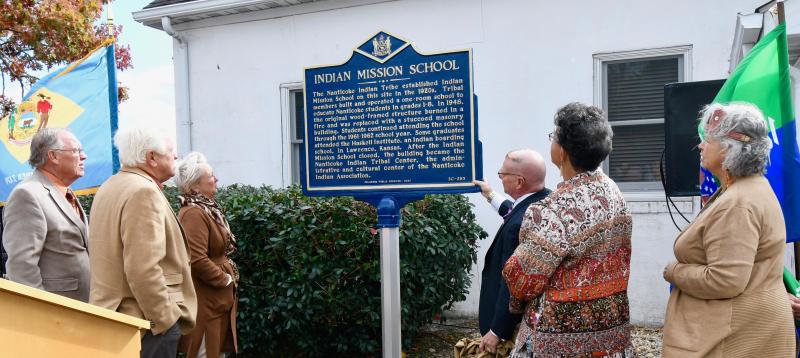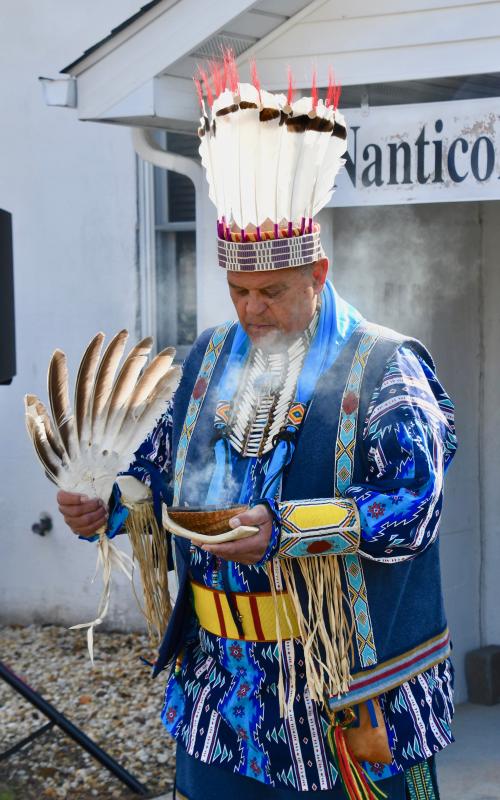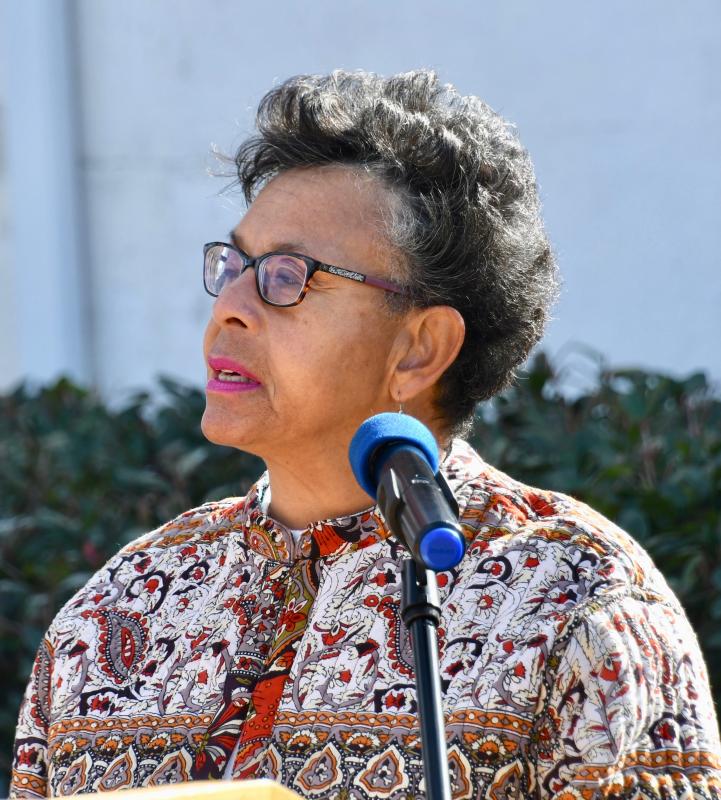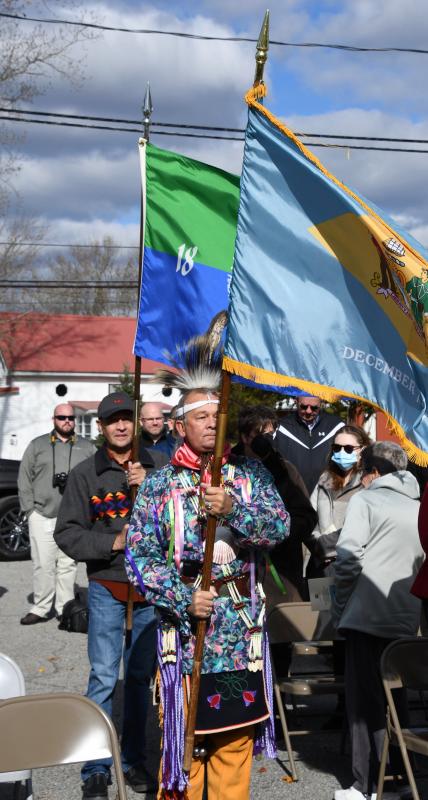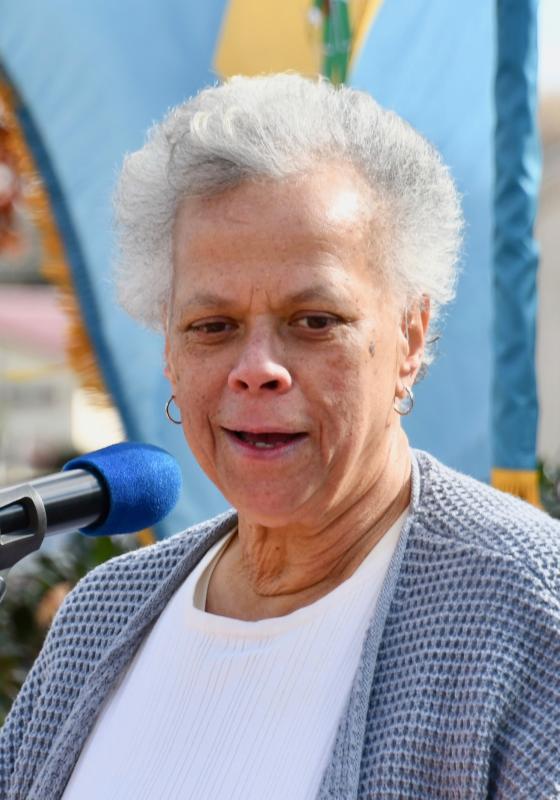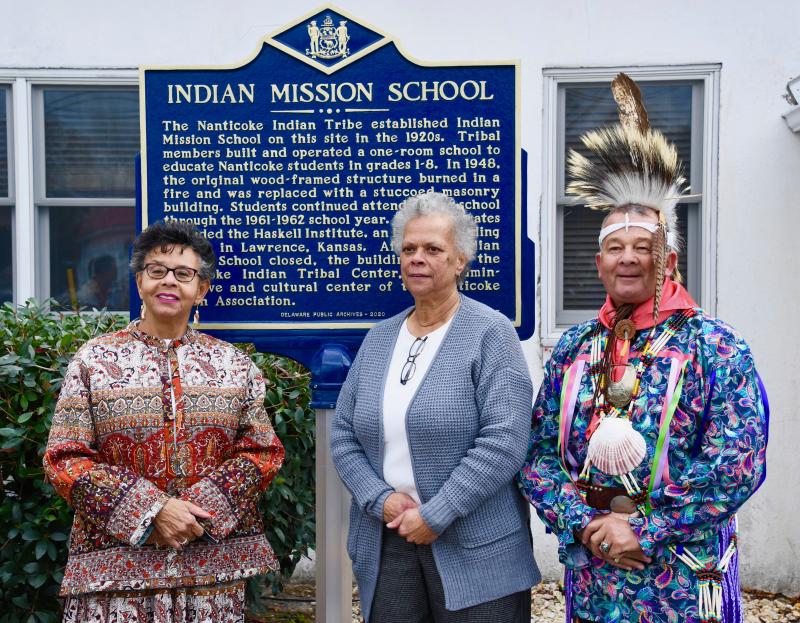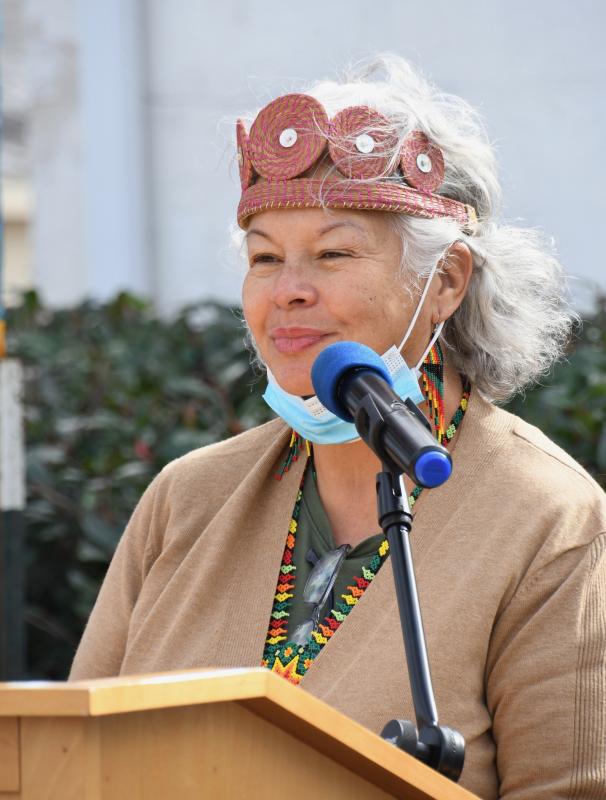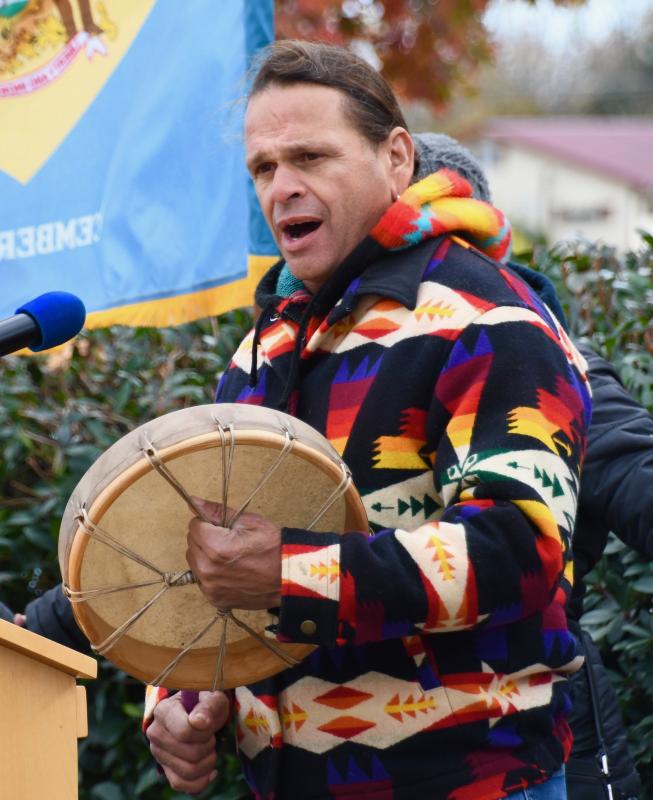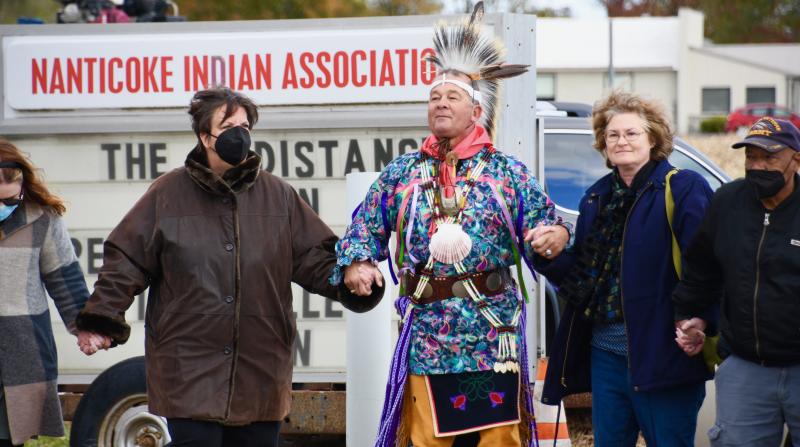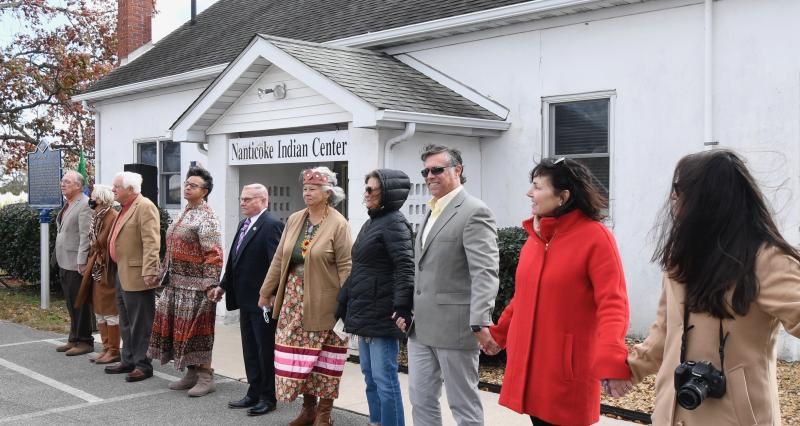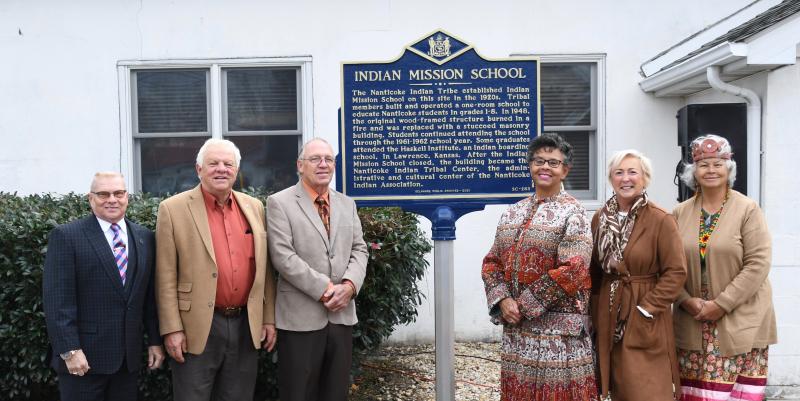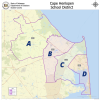A celebration in honor of Indian Mission School
The history of the Nanticoke Indian Mission School is now preserved for all to see. Nanticoke Tribe members hosted a dedication ceremony Nov. 15 for a Delaware Public Archives historic marker in front of the former school along Route 24 east of Long Neck.
The school, which operated from 1921 to 1962, is now the Nanticoke Indian Tribal Center, the administration and cultural center of the Nanticoke Indian Association.
Tribal members were joined by elected, school and municipal officials to commemorate the history of the former one-room schoolhouse.
“We are so proud of the legacy our ancestors left us,” said dedication ceremony chair, former student and emcee Bonnie Hall.
“We are proud of our heritage, but we are also creating history for our future generations. We are alive and we are thriving,” said Nanticoke Chief Natosha Norwood Carmine.
In telling the history of the school, alumna Leolga Wright said it took several years to get a law passed in 1935 by the General Assembly to provide funding to pay the teacher's salary. The state established the school for Moors and Nanticoke students in grades one through eight in the area.
Prior to the mission opening, students attended school at the present Nanticoke Museum at the intersection of Route 24 and Oak Orchard Road.
“The school was an extended family experience. Many students went on to successful careers. The legacy of the school will live on in the hearts and minds of those who loved it most,” Wright said.
The ceremony incorporated some of the Nanticokes' long-standing traditions, including a blessing of the grounds by Herman Jackson, presentation of the flags and a round dance.
The Nanticokes established Indian Mission School in 1921, with tribal members building the one-room school to educate Nanticoke students in grades one through eight. The original wood-framed building burned down in 1948 and was replaced with a stuccoed masonry building, which is on the National Register of Historic Places.
Students attended the school through the 1961-62 school year. Some graduates attended the Haskell Institute, a Native American boarding school in Lawrence, Kan.
